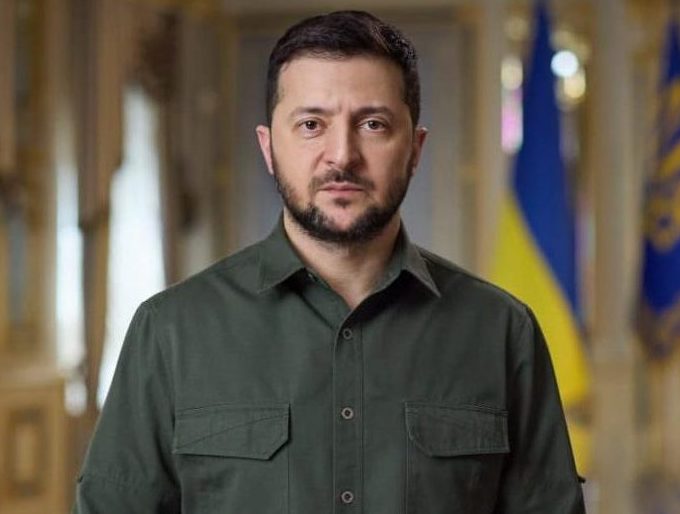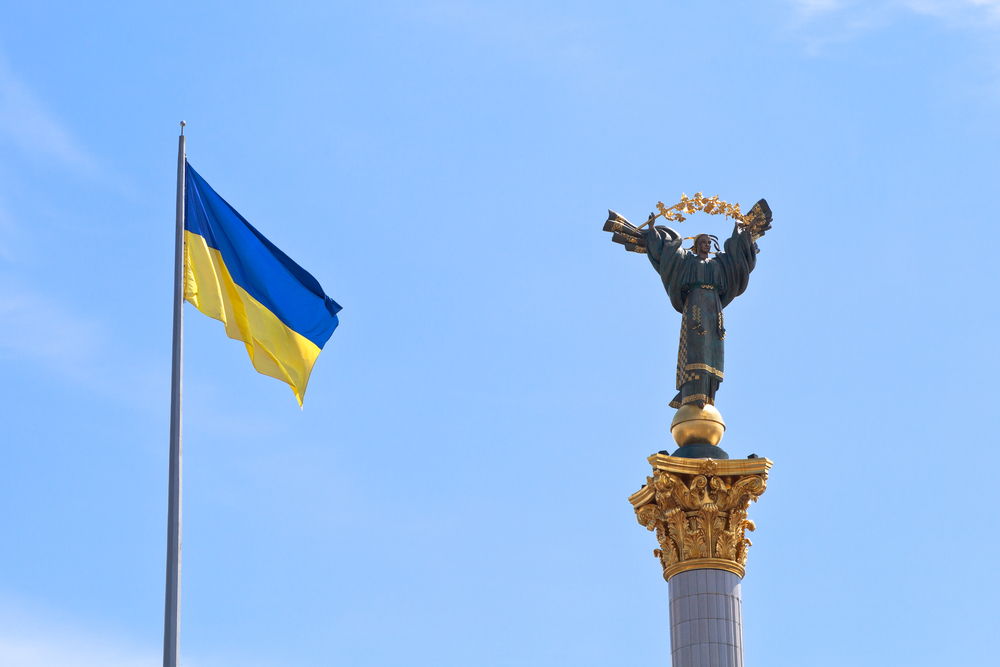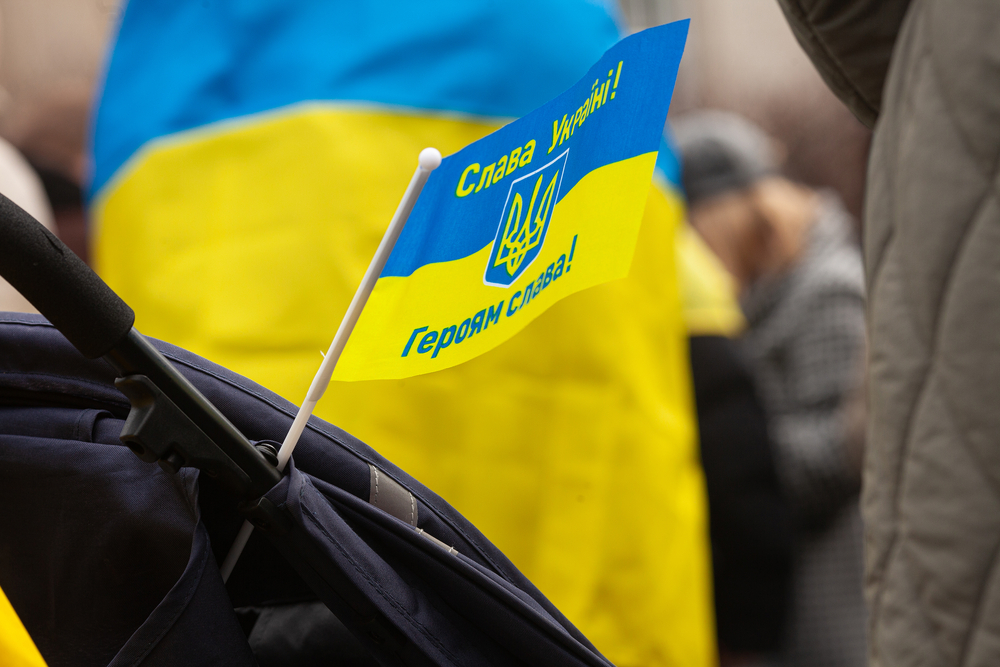With 254 out of 450 parliamentary seats won, President Volodymyr Zelensky’s party – ‘Sluga Narodu’ (or ‘Servant of the People’) – takes the absolute majority in the 2019 Ukrainian parliamentary elections. With these results, multiple initiatives undertaken by Zelensky prior to the elections will be reviewed and will resurface at the forefront of the new presidential agenda. One of such initiatives is the new lustration bill submitted by Zelensky on the 11thof July 2019[1]. The bill would extend lustration to top officials who occupied positions from the 23rdof February 2014 until the 19thof May 2019 and would include the president, the chairman of the Verkhovna Rada, the Prime Minister, ministers, the heads of the central executive bodies among several other post-Maidan government officials.
This bill comes amid many of such pre-electoral theatrical performances, including Zelensky’s expulsion of Yaroslav Hodunok over a past criminal record[2]and the dismissal of the customs officers of Volyn, Zakarpattia, Chernivtsi and Lviv regions over smuggling charges[3]. Further dismissals have included 15 governors as well as multiple heads of the Security Services of Ukraine (SBU). Apart from this, Zelensky had also asked for the resignation of the General Prosecutor – Yury Lutsenko – and the Minister of Foreign Affairs of Ukraine – Pavlo Klimkin[4].
Arguably, such incentive from the President could be championed as a step towards the overarching fight against corruption. However, underneath this incentive lies nothing short of theatrics and election maneuvering, which, in so far, has not yet contributed to the promised fight against corruption, but has, on the contrary, instilled fear of a return to Yanukovych-era politics.
Theatrics Over Execution
President Zelensky is, undeniably, aware of the fact that he must deliver on the fight against corruption which the former president – Petro Poroshenko – left unsolved, as it will serve as a benchmark by which the Ukrainian electorate will judge him. In this case, Zelensky does not want to become Poroshenko 2.0., who attempted to deal with the problem, but done it so remotely he couldn’t take any credit for it. Contrary to his predecessor, Zelensky opts for a different strategy in which he attempts to create and maintain an image of a just president (a ‘Servant of the People’) by publicizing and putting on display his ‘fight’ against corruption. Accordingly, this strategy employs a method of dismissing officials in the most ostentatious and overly flamboyant way possible as if to evoke some sort of positive reaction from the electorate.
This method employed by Zelensky to build his image of a just president is, however, problematic. This is because rather than focusing on execution, the dismissal of officials in front of cameras prioritizes theatrics. Questionable layoffs and appointments are blanketed by PR maneuvering and Zelensky’s own charisma, whereas bills and laws that are not convoluted or controversial are rarely presented.
Perhaps less noticeable, but a good example of this is the aforementioned lustration bill submitted by Zelensky. The bill, rather than being understood as a means of fighting corruption, could be understood as a means of getting a pre-election boost for the president’s party during the recent Ukrainian parliamentary elections. According to Bohdan Bondarenko, a constitutional law expert, the bill could be seen as a sort of hype intended to mobilize the anti-elite and anti-Poroshenko electorate to vote for his party[5]. However, underneath this hype, the bill remains highly convoluted and controversial, evoking not only domestic criticism, but also criticism from the G-7 ambassadors[6], who cited the bill as an “indiscriminate ban on all participants in executive and legislative governments”.
Further theatrics are notable in the dismissal of Yaroslav Hodunok, a bureaucrat with a questionable criminal past, who was called out by Zelensky as being a ‘rogue’ and was publicly told to leave the meeting room[7]. This incident is one among many similar incidents where Zelensky either tells officials to write a letter for their own resignation or the resignation of others in front of cameras[8]. So far there have been countless dismissals of various officials of different ranks, however, these dismissals, although public and garner a lot of attention, are void and useless when it comes to the overarching question of how the president is dealing with corruption. Because when it comes to dealing with corruption, nothing of value is actually being done, while the image of a just president who is valiantly combating corruption is created.
Of course, part of Zelensky’s inability to legitimately fight against corruption stems from the fact that he never had majority in the parliament which could have backed his bills in the first place. Consequently, Zelensky could have simply built his image and this pre-election hype to try to win an absolute majority in the parliamentary elections. If this is the case then the real fight against corruption will start only after the new parliament is created which can fully support most of the bills submitted by Zelensky. However, if for the past two months Zelensky had been solely focused on building his image and pre-election hype, then his real resolve in dealing with corruption remains obscure. And this poses the question of the potential abuse of office by the president.
Return of Yanukovych-era Politics
A further problem that arises from Zelensky’s inexperience and his constant antagonisms directed towards the former Poroshenko regime leads to what Peter Dickinson, a writer for the Atlantic Council, defines as the return of a post-Soviet “’political technology’ intent on safeguarding the positions of Ukraine’s oligarchy and facilitating the return of Yanukovych-era figures”[9]. This is problematic because not only does it pose a threat of the reinstallment of Yanukovych-era politics but it also undermines the achievements of the Revolution of Dignity.
According to former President Petro Poroshenko, the lustration bill submitted by Zelensky is an example of an attempt to smear the former regime and brand former officials as criminals who do not deserve to hold office[10]. Accordingly, Poroshenko notes that the bill is highly controversial because by antagonizing the former regime, the bill also antagonizes post-Maidan reformers. Consequently, the bill could be interpreted as an attempt to get rid of officials who defended the Revolution of Dignity and entered the government in 2013 trying to reform Ukrainian politics, following the will of the Euromaidan. If this is the case, then the introduction of the lustration bill implies a backsliding on the spirit of the Revolution of Dignity because it makes criminals out of those who defended it.
However, the fact Zelensky submitted this bill in the first place, implies that he had confidence that the bill would receive a positive reaction. And it comes as no surprise that there is a demand for the lustration of the former regime given the rampant corruption and all of the undelivered promises made by Poroshenko.
Perhaps a clearer example of this backsliding is the blatant disregard, by Zelensky, of the “on the cleansing of authorities”[11]bill submitted by the post-Maidan officials. The bill was aimed at lustrating the Yanukovych office due to human rights abuses, corruption, the usurpation of power, and the endangering of the territorial integrity of Ukraine among many other crimes, and was a staple achievement of the Euromaidan. This achievement, however, is being overshadowed by Zelensky’s latest appointments, including the appointment of Andriy Bohdan[12]as the head of the presidential administration, who was once a Deputy Minister during the Yanukovych regime, and to whom “on the cleansing of authorities” bill applies. Such a turnout of events puts into question the achievements of the Revolution of Dignity, particularly if officials whom the bill affects can bypass and enter the government irrespective of it.
Conversely, it must be noted that the lustration bill submitted by Zelensky also applies to Andriy Bohdan, because apart from being on the Yanukovych administration, Bohdan was also on the People’s Deputy list of the Poroshenko Bloc party[13]. Arguably, a lustration bill should have been submitted in 1991 in order to clear out all of the old Soviet officials, yet now, no matter how many lustration bills are submitted or signed into law, little will change because of the nature of Ukrainian politics – Andriy Bohdan being a good example of this.
A further observation to make is the return of Andriy Portnov. Portnov was the Deputy Head of the Yanukovych administration who was once sanctioned by the EU and who fled Ukraine after the Revolution of Dignity. In 2016, however, he was pardoned and the criminal case against him was dropped, yet he still remains affected by the “on the cleansing of authorities” bill and cannot run for parliament. Similar to Zelensky, Portnov voiced a proposal to lustrate officials of the Poroshenko regime days before Zelensky submitted the bill[14]. As underlined by Inna Polianska and Alya Shandra[15], writers for the Euromaidan Press, if both Portnov and Zelensky are colluding, then the return of Yanukovych-era politics becomes a real threat, instead of a perceived one.
However, the most active party in pushing the return of Yanukovych-era politicians remains the Opposition Platform – For Life. The party received 13% of the vote and is composed of many Yanukovych-era politicians, many of whom fled to Russia and might return after the parliamentary elections[16]. The Opposition Platform is intent on pushing pro-Russian interests and recently challenged the “on the cleansing of authorities” bill in the constitutional court of Ukraine in an attempt to reinstall Yanukovych-era officials within the parliament.
In this case, it is premature to put all of the blame on Zelensky for the return of Yanukovych-era politicians, especially when the real drivers of such a return is the Opposition Platform. However, it is not an overstatement to say that Zelensky’s appointment of Andriy Bohdan and the submission of the new lustration bill implies a more open and tolerant position by the president towards the reinstallment of pro-Russian politicians. This is also compounded by the fact that Zelensky has no clearly laid out plan for his presidency and a professional party to back him up, which causes a sort of political opening, allowing for other forces, including the pro-Russian ones to influence the president and Ukrainian political decision making.
The Future
Given the outcomes of the 2019 Ukrainian parliamentary elections and Zelensky’s party obtaining an absolute majority in parliament, Zelensky will be severely judged and scrutinized by the electorate on how he uses this absolute majority. On the one hand, Zelensky can transform this majority into a powerful weapon to advance competent reforms that combat corruption, but on the other hand, this powerful weapon can be used against Ukrainians in potential abuse of power by the president.
In the end, Zelensky will be severely tested in the upcoming years. The Ukrainian electorate, including myself, expect a lot from Zelensky without really lifting a finger of our own, which makes Zelensky’s presidency especially hard given the promises he is making. Ostensibly, the way in which Zelensky uses this absolute majority will be the next checkpoint by which we judge him and let us hope that Zelensky will persevere.
__
by Artem Kyzym*
References
[6]https://twitter.com/G7AmbReformUA/status/1149612182096662529
[8]https://en.interfax.com.ua/news/general/600793.html
[10]https://en.interfax.com.ua/news/general/599744.html
[11]https://zakon.rada.gov.ua/laws/show/1682-18
[12]https://en.hromadske.ua/posts/what-we-know-about-new-head-of-zelenskyys-pa-andriy-bohdan
[16]http://euromaidanpress.com/2019/07/08/who-is-responsible-for-the-return-of-pro-russian-politicians-in-ukraine/
Image: https://twitter-trends.de/volodymyr-zelensky-3/
*Opinion of our authors may not coincide with the official opinion of the organisation
Featured photo – from president.gov.ua






 UA
UA FR
FR DE
DE

